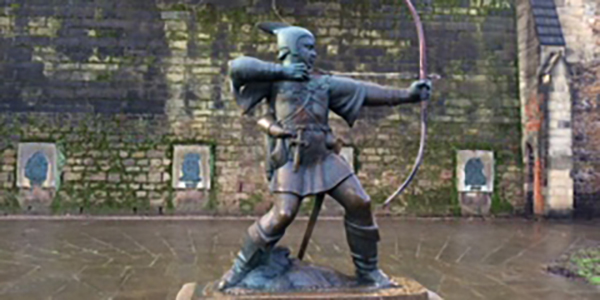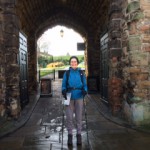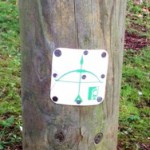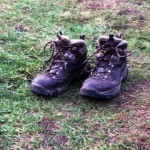
June 7, 2016, by Emma Thorne
Walking the Robin Hood Way to help detect breast cancer early
As the University’s Life Cycle 6 team recovers from 170 miles in the saddle to warm up for the main event in August, Denise Kendrick, Professor of Primary Care Research in the School of Medicine, is about to put on her walking boots and gearing up for her own gruelling challenge to support the charitable initiative and raise money in the fight against breast cancer – a cause which is very close to her heart.
“This year I’ve decided to walk 105 miles along the Robin Hood Way from Nottingham Castle to Edwinstowe between June 11 and June 17. More than 70 friends, family members and colleagues are very generously giving their time and energy to join me for some or for the entire walk. Our walk is raising money to support research at The University of Nottingham to develop a blood test to detect breast cancer early.One hundred and fifty women are diagnosed with breast cancer in the UK every day– that’s more than 53,000 a year. Twelve thousand women lose their lives to breast cancer each year, or 30 per day. One in eight women in the UK will be diagnosed with breast cancer in their lifetime. Breast cancer is so common; it touches the lives of almost everyone in some way.
Professor John Robertson’s team is developing a blood test to detect breast cancer early. Cancer cells have abnormal proteins on their surfaces, which our bodies detect and try to fight by producing antibodies against them. These antibodies circulate in the blood stream and can be detected by a blood test. Using these antibodies, breast cancers can be detected when they are too small to feel or see on a mammogram. We know there are treatments that are effective at preventing the most common type of breast cancers, so if women with positive blood tests were treated with these effective treatments, some breast cancers could be prevented.
Supporting this work is really important to me. When I was eight, my father died, leaving my mother with three small children to bring up. My aunt, a lovely, warm, intelligent and humorous woman was very important in helping to bring us up. She was the kind of woman you could tell anything to. She was a keen rambler and taught me to love walking. It is now 24 years since she died, from breast cancer, in her mid-fifties. Walking seems like a fitting way to remember her.
In 2008 I was diagnosed with breast cancer. I had surgery, radiotherapy, chemotherapy, Herceptin and am still having hormone treatments. Breast cancer steals lives, futures, hopes and dreams. If it doesn’t kill you, it can change your life forever, and some of those changes will not be positive ones. Developing this blood test is one way we can prevent other women from having to go through this experience. This walk is my way of helping this happen. Please support our walk if you can:
https://www.justgiving.com/Denise-Kendrick”
- Denise at the start of the route
- The Robin Hood Way
- These boots were made for walking…the Robin Hood Way
No comments yet, fill out a comment to be the first




Leave a Reply